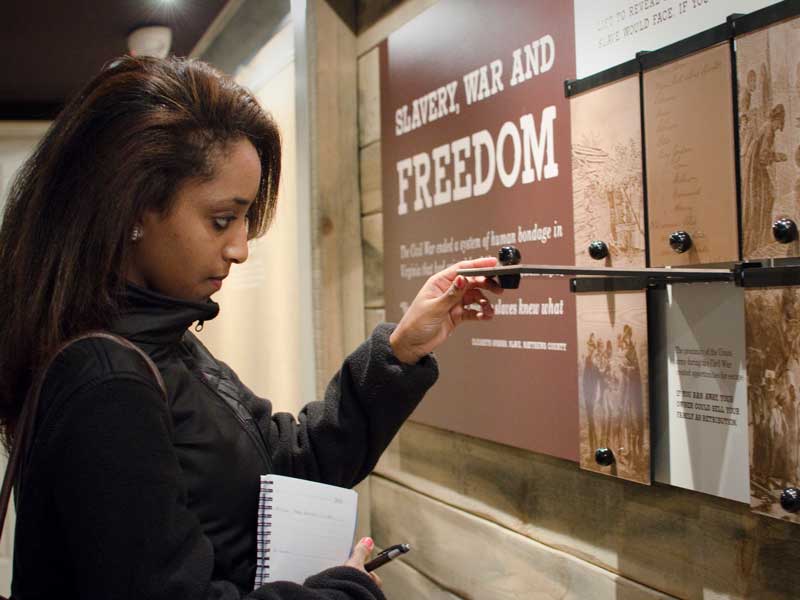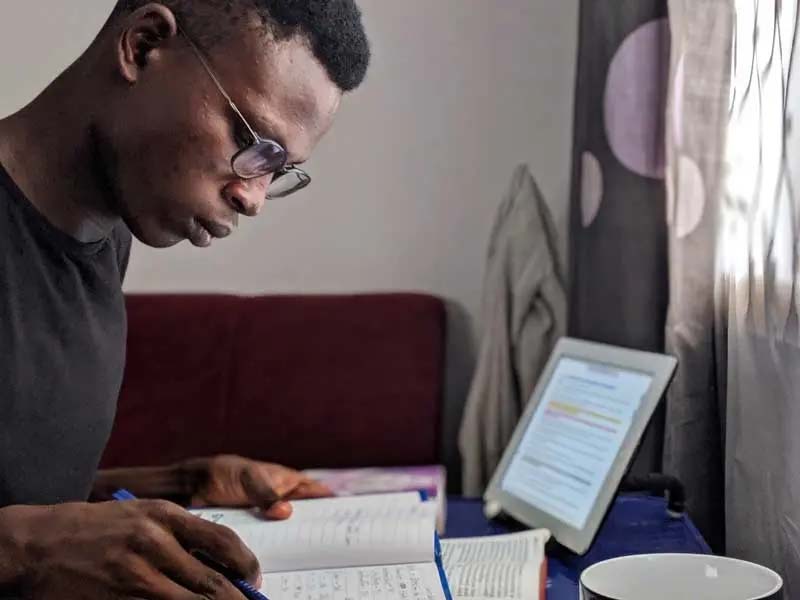About
VCU’s Department of African American Studies enjoys a rich and distinguished history as the second department of its kind created in Virginia.
The pioneers who created the department as it exists today were not without challenges and setbacks, but these visionaries persevered in their commitment to teach and understand the experience of African Americans.
The field of African American studies is not without controversy, but scholars embrace these challenges as opportunities to explore and resolve critical social issues. African American studies in the past and today imparts knowledge that contributes to positive social change.
Why major in African American studies?

African American studies majors interpret and gain a solid understanding of the culture, politics and intellect of African Americans in the past and into the future.
As an interdisciplinary field, students pursue individual interests of art, history, medicine and more. Students are challenged to look at those of African descent throughout the Black diaspora as well as their impact on society. Students also analyze and compare other cultures and their influences on African American society. With small classes, students never miss a beat to be a part of discussion, events and advising within the department to achieve scholarly success.
African American studies alums have limitless career opportunities. Students acquire valuable critical thinking, writing and speaking skills, and go on to become teachers, lawyers, politicians, artist, historians and media personalities — just to name a few.
There's a myriad of reasons one should consider a major in African American Studies - take a look at this list of examples.
Philosophy of African American Studies at VCU
The philosophy of our department is situated along the pragmatism strand of the Black studies intellectual tradition. The progenitors of this philosophical orientation in Black studies, Ana Julia Cooper, W.E.B. Du Bois, Alain Locke and Carter G. Woodson — to name a few — articulated the principles of a paradigm focused on the applications of knowledge to solve real-world problems confronting Black people in the U.S. and abroad.
These men and women were instrumental in the emergence of the Black studies movement that began in the 1930s. In the 1950s and 1960s, philosophical pragmatism would be the major impetus to social scientific inquiry, revealing the devastating effects of disenfranchisement, poverty and racism that disproportionately impacted Black people.
By the 1970s, Black studies departments across this country endeavored to train scholar-activists who could address and solve crises on community, state and national levels. VCU’s Department of African American Studies embraces this tradition to prepare scholar-activists to tackle the real problems of the world.
Why is this philosophy significant to African American studies at VCU?
This philosophy shapes our vision and the academic learning goals for our students. We hold that our students must be prepared to think and to act in order to solve the unstructured problems that confront Black communities.
As a premier undergraduate program in African American studies, our department is committed to providing students with a quality education that utilizes multidimensional approaches to advance the study of Black experiences. Our department employs a dynamic pedagogical model that incorporates academic and real-world learning goals that focuses on teaching students how to define, measure, interpret and validate Black experiences.
The academic preparation we provide students places strong emphasis on the theoretical and methodological tools to deconstruct mechanisms of scientific racism, and the application and transfer of empirically derived knowledge across communities and disciplinary boundaries.
To where does this philosophy move us?
The philosophy of the department has always been student-centered, and the needs of students have changed over time. Our philosophical orientation places us in the best position to advance the value proposition for our students in the 21st century. That is, we endeavor to provide our students with culturally enriched knowledge and skills that will enhance their careers and/or prepare them for graduate or professional study.
We embrace students from all disciplinary backgrounds who want to develop new lenses through which to interpret Black experiences. Our department creates a space for all students seeking to create and promote positive social change through the resolution of conflicts and crises.
In essence, a degree in African American studies prepares our students to solve problems of social change, instilling within them a sense of collective purpose, knowledge discovery and a guide to action.

